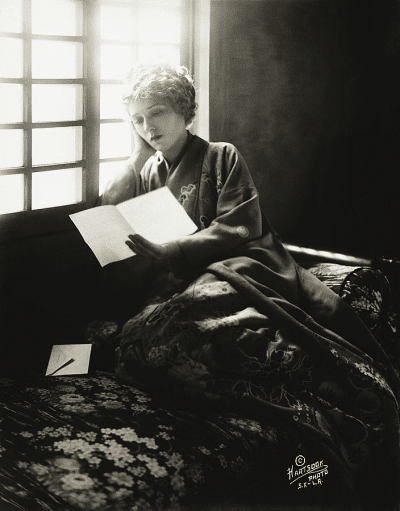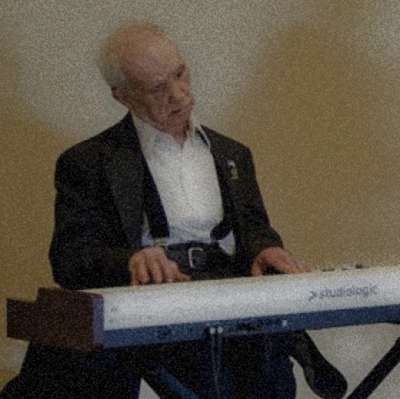.
.
“Bashert,” a short story by Diane Lederman, was a short-listed entry in our recently concluded 63rd Short Fiction Contest, and is published with the consent of the author.
.
.
___
.
.
Army, Navy Marine Corps. All Booming.
Enlistments in Boston are Pleasing to officers
Enlistments for the Army, Navy and Marine Corps Boston continues with unabated
enthusiasm and enlistment officers are hopeful of surpassing their great record of last week.
.
Boston Globe March 30, 1917.
.
.
House By 373 too 50 Votes for War
Pacifists Show unexpected strength when Democratic Leader Kitchin Makes Eloquent Speech Against War Republican Mann Warmly Supports President – Great War Budget Sent to Congress From White House – $3,000,000,000 to be spent in Building Up Army – Vast Preparations of Conflict Pushed Rapidly
Action followed 17 hours of continuous debate, during which party lines were obliterated. The Senate passed the resolution yesterday. The President will sign it today.
.
Boston Globe April 6, 1917
.
.
Conscription Wins in Senate and House
Both Branches of Congress Vote Down Volunteer Plan by Overwhelming Majorities and Pass Bill to Raise Big Army
Both Houses raise minimum age to 21 – House Would Include Men up to 40
.
Boston Globe April 28, 1917
.
.
___
.
.
Mary Pickford, 1918/trialsanderrors, CC BY 2.0 , via Wikimedia Commons

.
.
Bashert
by Diane Lederman.
.
…..Jonas Orenberg had never been to Jordan Hall, never been to a real concert, but the two-color poster caught his eye as he passed the Boylston Street Cafe last night. Buying a ticket to benefit the Jewish home for children was bashert – his destiny.
…..So, this morning, he shaved carefully, dressed in his light gray flannel suit he wore only on special occasions – and bought a ticket for $2. He could spare it now. He had managed to save $25 collected in a sock without holes and would soon be earning $30 a month without worry of rent or rations.
…..Jonas had lived in the Jewish orphanage for six years, waiting and hoping his father would return to take him home. But that became a pipe dream, and he stayed until he turned sixteen, finishing high school a year early.
…..Since leaving last year, he earned money running errands for a music publisher, delivering messages for a newspaper, resetting pins in a bowling alley, and was learning the shoe business, a job he was only too eager to leave for the army. He didn’t care for the factory smell or the managers who seemed to have eyes like magnets on the laborers, watching for any mistake or idle moment. He didn’t think he was a man with a temper but was afraid he might acquire one if he stayed long enough.
…..And now a different kind of job, a new place to live. Tomorrow, he was departing for Camp Devens to become a soldier, then hopefully soon to France. It seemed one thing in his life led to the next and that seemed all right, something he was used to and now expected. He just had to gain a little weight. He was just on the edge of being too slight for his five-foot seven-inch frame. He wasn’t ill he explained to the doctor who squinted in thought after taking Jonas’ measurements. “Still growing.”
…..Traveling to France, from all he read in the papers, would be a great adventure. Soldiers there seemed happy enough. Three fellows he knew from the West End House had enlisted as well and perhaps he’d be in the same unit or others from the club that in way became a family for him.
…..Jonas was hoping money raised from the concert this afternoon would help youngsters when it came time to leave the orphanage. He was so anxious before he left, he couldn’t eat for two days. He was given money for a week’s lodging and food but having a month’s help would have eased his worry.
…..Gazing at the crowd in the concert hall, he guessed maybe three or four hundred were here. Seeing the jewels, pearls, and pendants, and what looked like diamonds on fingers and ears, this was a wealthy group and likely contributed more for their tickets than he paid. The orphanage should raise a considerable sum.
…..Pulling at his collar, a little too starched for his liking, he hoped he didn’t look out of place.
…..Then he saw her.
…..As Miss Clara Ecker almost glided from the wings of the stage to the grand piano, Jonas understood even more why fate had beckoned him. Clad in a navy-blue dress hugging her slim body with a low white collar revealing a swan-like neck, she was the most beautiful woman he had ever seen. And this was with his eyes from the rear, not up front where he’d be privy to a grander view.
…..But he was cautious taking a seat. Not knowing the pieces by Bach and Chopin, and songs titled in French that she would be performing, he wasn’t sure he would like the music. From the auditorium’s rear, he reasoned he could slip out without fuss if the music was unpleasant or harsh. He would not leave now no matter; her fingers would never play anything discordant.
…..The hall went silent as Miss Ecker sat. She had no music before her and gazed at her hands as if asking if they were ready to play. Then she started. Her fingers seemed to caress each key, rather than strike them.
…..Jonas loosened his tie and leaned forward, breathing deeply with each crescendo. The music was speaking just to him, he was sure of it. She was exquisite – she and the piano one. Time moved but didn’t at the same time.
…..Then in his mind, he saw it – the piano in his tenement when he was young. It was mahogany and small, and his mother played such beautiful music. The notes Miss Ecker struck called the memory to him. His mother had been sick for years, racked in pain from tuberculosis that made it hard for her to breathe but still she played every day. He would sit by her feet, watching as they touched the pedals, feeling the vibration from the keys above. His mother would ruffle his hair when she finished and in Yiddish tell him meyn sheyn eyngl -my beautiful boy.
…..And then she died, and his father crumpled like a newspaper. He told Jonas he was taking him to a new home for a little while. “They’ll do right by you,” he said. “They’ll take care of you. A man is not meant to be a mother. If I can, I’ll come back.”
…..He packed a sack for Jonas with a pair of shoes, three pairs of trousers, undergarments, socks, and a jacket. They took a streetcar to another part of the city, arriving at a three-story brick building that looked like a school, not a home. His father took ten-year-old Jonas by the hand to the front door, rang a bell and waited. A woman, wearing a long dark skirt and white blouse, spoke to his father in Yiddish. His father tousled Jonas’ hair. “Be a good one for them. That’s what your mother would ask.” Then he was gone. Jonas’s throat went as dry as the sand at the Charlesbank Beach.
…..“Egern Nisht, don’t worry,” said the woman who was the tallest Jonas had ever seen. “I’m Miss Baer, Isabelle Baer but I let special boys like you, call me Izzy.”
.
…..Hearing murmurs and then applause around him, Jonas saw people standing. He joined watching Miss Ecker depart from the stage. The concert couldn’t be over, he needed more. But people weren’t leaving, and he remembered the ten-minute intermission.
…..Seeing a few empty seats closer to the stage, he moved and sat waiting, imagining Miss Ecker seeing him there enthralled and when she finished, she would beckon him to her. He gazed around quickly to see if she might have family here. A mother or husband or others like him, equally smitten. He wanted to be the only one. He had to be the only one.
…..During the interlude he nodded to a few couples sitting nearby but was too shy to speak to them. As people took their seats again, he saw the profile of a man who looked like his father. His heart pounded in his chest so loudly he couldn’t hear anything around him. But then the man turned and looked at Jonas, it wasn’t his father at all. He was much older than his father would be. He wondered why he even considered the resemblance.
…..A patron nearby mentioned war and questioned his companion whether she thought it would affect the concert season. “That would be a shame if it did,” she said.
.
…..The audience greeted Miss Ecker’s reappearance with more applause, as if it had never stopped. He was gratified they appreciated her as much as he did.
…..She looked up briefly, shyly, her dark hair framing her face. She smiled with her lips, looking a little like the actress Mary Pickford. He took a breath, inhaling what he thought was the lilac of her cologne. He was close but not close enough. He wanted to be there, up on the stage on her piano bench, sitting next to her.
…..His mouth was open, he closed it, reminding himself to breathe. The music danced and wove through him, and if he died now, or later in France, he would have lived beyond his years, happier than he ever imagined being. Time was lost, it was here with him, then gone. He was afraid the afternoon would end. Then the music stopped. He sat bereft.
…..He waited for everyone to leave and waited some more, to see if Miss Ecker might return to the hall or for an assistant to come to the piano and retrieve something she left behind and wave to him.
…..But after fifteen minutes, he walked slowly up the stairs to the stage, and no one stopped him. As he continued down the hall to a series of rooms with closed doors, he called out softly “hello,” “hello.” “Miss Ecker.” He hoped he wasn’t speaking too loudly. A door opened.
…..“Yes,” an older woman asked.
…..He wondered if she was her mother. She too had dark hair and was dressed in green, the color of leaves in the spring.
…..“Is Miss Ecker still here?”
…..“Does she know you?”
…..He shook his head no. “I’m leaving tomorrow for camp and wanted to say hello and tell her how much I enjoyed her performance.” His palms sweated, and his pulse pounded. He had never done anything like this before. But he was facing war. That certainly was full of greater danger.
…..She turned her head, and he heard murmuring and feared Miss Ecker’s was saying no, that Jonas should leave.
…..“Come in for a moment.” She opened the door allowing him to pass.
…..“You’ve met my aunt Mrs. Elaine Ecker,” Miss Ecker said. She was even lovelier this close.
…..“I’m Jonas,” he said. “Jonas Orenberg.” He cleared his throat, wishing he had a glass of water. “Your playing, I don’t know how to say how wonderful it was. Listening, I remembered so many magnificent things.” He wanted to tell her about the orphanage and his mother but stopped. He wasn’t sure how to tell her right.
…..“My aunt says you are leaving?”
…..“Camp Devens tomorrow. Enlisted.” He was pleased to say that. “Wasn’t old enough otherwise.” Maybe he shouldn’t have confessed that. She was likely older than he was. “It’s right to go. Patriotic. My rabbi, Rabbi Berger believes it is so.”
…..“Ah,” she said, “he’s my rabbi too. I haven’t seen you at shul.”
…..“I’m not one of those, you know, who go every week, just at times.”
…..“I’m the same,” she said, running a finger over her nose, her eyes lost focus. “My brother Oscar is waiting for his number, a bit anxious actually. He has not sought out the rabbi.”
…..“Clara,” her aunt said. “It’s not for us to discuss the war. And you know your brother will do the right thing.”
…..Clara bit her bottom lip. Her aunt looked at Jonas, raising her eyebrows slightly as if to apologize. Jonas shifted on his feet, straightened his tie. He wasn’t troubled but understood she might be uneasy to question the war with someone she doesn’t know.
…..Yet all Jonas wanted was to ask Miss Ecker to have dinner, but instead said, “you know, I hope you don’t mind if I say, you look a little like Mary Pickford.”
…..He knew he blushed, but he wanted Miss Ecker to know and for her not to worry about what she said about her brother.
…..“I like her very much.” she said, her voice was quiet, she seemed tired. Picking up her shawl and purse, she turned to Jonas, “We must leave now Mr. Orenberg. Thank you for your good wishes.”
…..“Yes,” Jonas said. Any other words he wanted to say were so far inside he couldn’t get them out. He walked with them to the door and opened it out onto the late afternoon sun on Huntington Avenue. He saw a Chinese American restaurant across the street and pointed. “Miss Ecker, have you eaten there at the, I don’t quite know how to say it, the Santung Cafe?”
…..“No, I have not. Have you?”
…..He shook his head no. “I’ve never had Chinese food.”
…..“Nor I Mr. Orenberg.”
…..He smiled with that and wanted to ask if she wanted to try it now with him, but then as she turned to walk away said, “Well, good luck over there, Mr. Orenberg.”
…..He needed her telephone number or address otherwise he would never see her again. Like his mother. He tipped his cap watching them walk away, then huddling together as if sharing a secret.
…..“Miss Ecker?” He walked quickly to catch up to her.
…..“Yes.” She waited, for him to speak, her fingers tapping absently at her purse hanging over her shoulder. She was either nervous or impatient. “Miss Ecker would it be all right if I wrote to you from over there?”
…..He watched her face to see if his request displeased her. Maybe she had a symphony of suitors. He felt clever with that thought. But she raised her brows, flushed slightly pink, and seemed to consider what he asked.
…..“All right, Mr. Orenberg. I see you have no pencil but if you remember my address, then of course you can write.” She tucked a strand of hair behind her ear, repined her hat and watched him as she said. “Thirteen Blossom Street.”
…..What a lovely address he thought and couldn’t help but smile nor hide the joyfulness from his eyes. He would write to her, often, and he would come back. Knowing she was here was his protection, his amulet from snipers and bombs, from disease and anything else he might encounter. He was not afraid.
…..“When I come back, I will take you out for dinner, if you allow it. Someplace nice,” he said. “Or even that restaurant there.” He pointed to the Chinese restaurant. “And we can both try new food.”
…..“All right Mr. Orenberg. Goodbye.”
…..He watched her walk with purpose with her aunt and fancied how happy she’d be to see him, that he came home safe because of her.
.
.
___
.
.

Diane Lederman was a reporter in daily journalism for 40 years, and also wrote fiction for 25 of those years. She has been writing fiction full time since retiring from reporting three years ago. She has taken writing workshops at the Fine Arts Work Center in Provincetown and the Muse in Boston, and has recently had stories published in Jewish Fiction. Net., Adanna Literary Journal, Verdad and Kestrel. “The Surprise of It” is from a collection of a dozen stories about the impact of the so-called Great War on the West End Community in Boston.
.
.
___
.
.
Click here to read “Company,” Anastasia Jill’s winning story in the 63rd Jerry Jazz Musician Short Fiction Contest
Click here to read “The Surprise of It,” a short story by Diane Lederman
Click here for details about the upcoming 65th Jerry Jazz Musician Short Fiction Contest
Click here to subscribe to the Jerry Jazz Musician quarterly newsletter (it’s free)
Click here to help support the continuing publication of Jerry Jazz Musician, and to keep it commercial and ad-free (thank you!)
.
.
___
.
.
Jerry Jazz Musician…human produced (and AI-free) since 1999
.
.
.









































Excellence from an excellent writer and a wonderful friend.